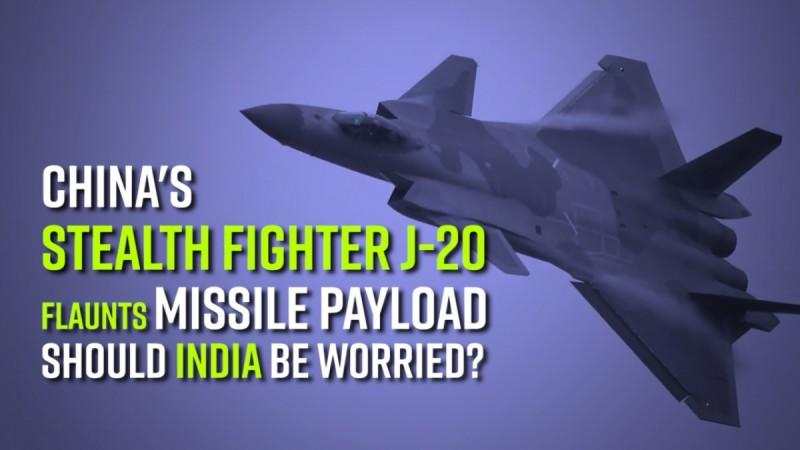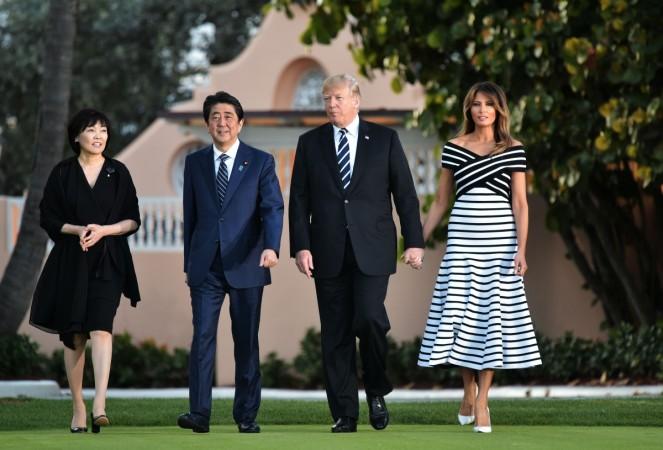With Japan placing orders for more than 100 of the most advanced F-35 fighter jets from the US, the military equation in Asia is set to change permanently. With this move, US President Donald Trump has successfully checkmated China's rising military expansionism in the South China Sea and beyond. In a clear fallout, India too stands to benefit from the strengthening brace against China in the region.
Japan's decision to buy 105 F-35 Lightning jet fighters from the United States was announced in December but the confirmation came during Trump's Japan visit this week. "This purchase would give Japan the largest F-35 fleet of any US ally." Trump said in Tokyo.
Military experts have said the move is meant to give Japan the firepower it needs to counterbalance the recent aggressive posturing of China in the region. They warn that the 'pacifist' Japan's move to increase military assets will fuel an arms race in Asia.
"The [F-35 deal] can help Japan counterbalance threats from China ... and it can be seen as a vital part of the worldwide coercion strategy of the US ... This is bound to upset the balance of power in the Asia-Pacific region, given the large quantity of warplanes ordered by Japan," said Zhou Chenming, a Beijing-based military expert, according to the South China Morning Post.

China had made headway in the stealth fighter race in the region with its J-20 fighters, but with Japan acquiring a gigantic fleet of the latest Lockheed Martin-made F-35, the People's Liberation Army will feel the heat. The single-seater and twin-engine Chengdu J-20 was blooded by the Chinese Air Force in February last year. In November, the Air Force showcased the J-20 stealth fighters with full missile loads at its biennial Zhuhai air show.
Setback for China's J-20 programme
China also suffered a setback with its ambitious J-20 programme, which it claimed was an answer to the US F-22 and F-35, when it was reported that the J-20 suffered from engine problems even after its deployment.
With Japan acquiring the F-35 fleet, China will go into an overdrive to rescue its Chengdu J-20 and modernize it further.
"The purchase will definitely trigger a regional arms race, prompting China to do the same by developing and deploying more of its own advanced stealth fighter jets in the region to counter the military presence of the US and its allies," Song Zhongping, Hong Kong-based military analyst and formerly an instructor with the PLA Artillery Corps, told the SCMP.
Trump and Japanese Prime Minister Shinzo Abe, both nationalists, have been more alert to the increasing military threat from China than their predecessors. While the F-35 deal will give Japan air superiority that would make China cringe, the move is also aimed at containing the North Korean threat. In the bargain, India, which too has felt the heat of China's strident militarism and India encirclement strategy in the recent years, will also benefit.

Free and Open Indo-Pacific
Japan sees the F-35 deal essentially as part of its commitment to create "Free and Open Indo-Pacific" and to ensure "rule of law, freedom of navigation and free trade" in the region. This is as much important to India as for Japan. The US foreign policy, in recent years, has also given pre-eminent attention to restricting the Chinese expansionism in the seas around it.
Under Abe, Japan accelerated it emergence from the post-World War II pacifism, a shift in strategy that indicated that an unquestioned Chinese domination in the region was being challenged.
The US aims to contain military and geo-economic reach of China resulted in greater cooperation between US, Japan, Australia and India and the subsequent formation of the Quad quartet. With Japan reasserting its rightful place in the security calculus in the region the much-needed military balance will be the result. As Brahma Chellaney wrote in Japan Times, the cooperation between Japan and India will strengthen following the re-election of Narendra Modi with a thumping margin.

















